
Over at
That Strange Feeling, George has a very interesting post about
church and sexuality taken from the books he recently read. Incidentally, George is my younger brother. He is running a very interesting blog that is sometimes philosophical, sometimes theological, sometimes fictional and humorous and sometimes personal and emotional. Anyway,
this is what he has to stay:
Rummaging through piles of used books, I chanced upon two troubling (that is, for me) books about church and sexuality. The first is Mary Daly’s
“The Church and the Second Sex” and the other is
“Living in Sin?” by Episcopalian Bishop John Shelby Spong.

The Church and the Second Sex is a troubling book because of its graphic indictments against Religion specifically Christianity and her churches for its treatment of women.
A portion of Daly’s 1985 foreword of her book is enough to exhibit her attitude towards Christianity and religion in general…
“…For there is a truly Tremendous Event that is “still on its way, still wondering—it has not reached the ears of man (from Nietzsche).” And women have done it ourselves. This event is the self realizing of women who have broken free from the stranglehold of patriarchal religion, with its deadly symbols, its ill logic, its gynocidal laws and other poisonous paraphernalia.
The bringing about of this event, exorcism of the poisonous patriarchal god and his attendant pathologies, has required and continues to require Courage--…
The courage to leave such an institution as the catholic church and, beyond that, Christianity in general and all patriarchal religion in all its form—both sacral and secular—is often born out of desperation. If the motivating force that propels one to leave is realization of one’s own spiritual and elemental powers, this leaving involves leap after leap of living faith. It is my observation that Living faith propels women out of patriarchal religion…
This still comes down to the problem of literalizing the Bible with regards to its archaic teachings about women, which is really ungodly. Daly talked about transcendence and she’s right, but the realization of that transcendence for her is in leaving the church and in dismissing what she calls “patriarchal religion” and not on transcending biblical literalism and “going in to Christ.” Or she might have already done that, and I’m sure she did, and she still found it unacceptable because Christ is a man.
It must still be about Christ and Christ’s attitude towards women that must be the basis for the church’s relation with the other sex and not biblical literalism.
“Harvey Cox expressed the Christian condition accurately when he said that Jesus Christ comes to his people not primarily through ecclesiastical traditions, but through social change, that he goes before first as a pillar of fire. There is no need then to be obsessed with justification of the past. In fact, while it is necessary to watch the rear view mirror, this does not tell us where we are going, but only where we have been.”
Change is forthcoming and the church will survive. It survived the Copernican revolution that removed humanity as the center of the universe. Why won’t it survive another revolution that will make men truly equal with women?
“Living in Sin?” is an interesting book for its position on homosexuality. The books discuss many issues on sexuality from “betrothal” i.e. trial marriages sanctioned by the church but not by the state, to “divorce ceremonies”. But what caught my attention was the book’s exegetical study on homosexuality.
1. Biblical references to homosexuality are small.
2. There is not one reference to homosexuality in any of the four gospels.
3. The Lord (Jesus) appears to either have ignored it completely or to have said so little on the subject that no part of what he said was remembered or recorded.
4. If one reads the Sodom and Gomorrah narrative with an open mind one will discover that the real sin of Sodom was the unwillingness on the part of the men of the city to observe the laws of hospitality. (It is impossible that all the men in Sodom are homosexual, why offer ones daughter to be ravaged and gang raped?)
5. Why was it that biblical condemnation of homosexuality was limited to male homosexuality?
6. How about Paul’s condemnation of the effeminate? (1 Cor. 6:9-11). Paul never married. He seemed incapable of relating to women in general except to derogate them. He talked about a thorn in the flesh. Was that connected with Paul’s understanding of himself, of his own sexuality?
….many more
Even if one is a biblical literalist, the biblical references do not build an ironclad case for condemnation. If one is not a biblical literalist there is no case at all, nothing but the ever present prejudice born out of a pervasive ignorance that attacks people whose only crime is to be born with an unchangeable sexual predisposition toward their own sex. (The author cited scientific studies that affirm homosexuality as a genetic occurrence as opposed to the Freudian theory of homosexuality as a psychological deviation or the churchs teaching that homosexuality is an abomination.)
If new knowledge about the cause and meaning of homosexuality confronts us, then we must be willing to relinquish our prejudice of Holy Scripture and turn our attention to loving our gay and lesbian brothers and sisters, supporting them, and relating to them as part of God’s good creation. That will inevitably include accepting, affirming, and blessing those gay and lesbian relationships that, like all holy relationships produce the fruits of the spirit—love, joy, peace, patience, and self-sacrifice—and to do so in the confidence that though this may not be in accordance with the literal letter of the biblical texts, it is in touch with the life giving spirit that always breaks the bondage of literalism.
Looking back, most of the Old Testament bible is in reality a survival book for the Jews. Most of its laws are meant to preserve the integrity of the Jewish race and of their religion. The same with the New Testament, it is mostly a survival book too--a call for exclusivity against the onslaught of the other religions. But since the threat is not there anymore, there is really a need to redefine the bible especially in the age we are in now. One must be ready to “transcend” the letters and go beyond to the Word. An open but discerning mind is the best policy here.
 One morning as we were getting ready for our morning worship service, I looked out of the window and felt the mild wind of the morning air, made sweet and cool by a strong pouring rain. Our Burmese Pastor walked in and stood by my side and said, “this year seems to be unusual, the rain came early and rains are the heaviest I've seen so far since we moved here in Mae Sai.”
One morning as we were getting ready for our morning worship service, I looked out of the window and felt the mild wind of the morning air, made sweet and cool by a strong pouring rain. Our Burmese Pastor walked in and stood by my side and said, “this year seems to be unusual, the rain came early and rains are the heaviest I've seen so far since we moved here in Mae Sai.”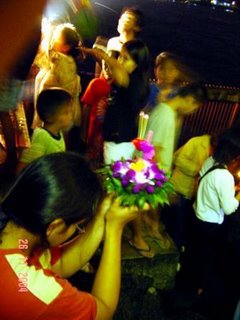 Our Burmese Pastor continued... “however, today, this rain will be the last rain for this year.” I looked at the calendar that hanged beside the window and asked him with a hint of unbelief in my voice, “is that so? We are just on the second week of October.” And he answered, “I'm pretty sure that this will the last rain. Then after a week, the Buddhists both Burmese and Thais will go to the river to float their little boats with candles, joss sticks, flowers, money and sometimes food to offer thanksgiving to the goddess of river for providing the rain for an assurance of good harvest this year. In that boat, they will also cast the bad lucks they had and the wrongs they did for this year and feel good looking forward to the coming year.” He looked at me as if saying, you have to believe me and I give him a very slight nod.
Our Burmese Pastor continued... “however, today, this rain will be the last rain for this year.” I looked at the calendar that hanged beside the window and asked him with a hint of unbelief in my voice, “is that so? We are just on the second week of October.” And he answered, “I'm pretty sure that this will the last rain. Then after a week, the Buddhists both Burmese and Thais will go to the river to float their little boats with candles, joss sticks, flowers, money and sometimes food to offer thanksgiving to the goddess of river for providing the rain for an assurance of good harvest this year. In that boat, they will also cast the bad lucks they had and the wrongs they did for this year and feel good looking forward to the coming year.” He looked at me as if saying, you have to believe me and I give him a very slight nod.
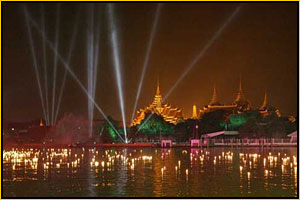
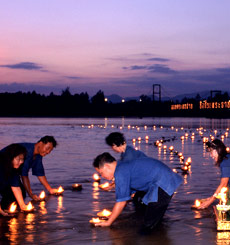

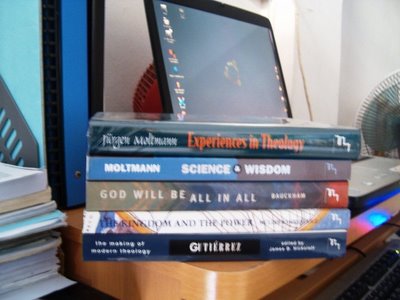
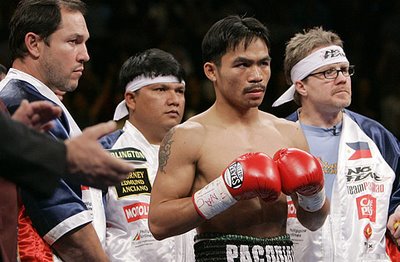


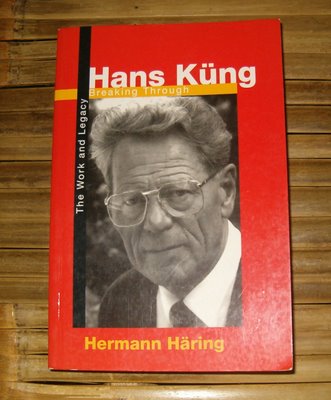


.jpg)

